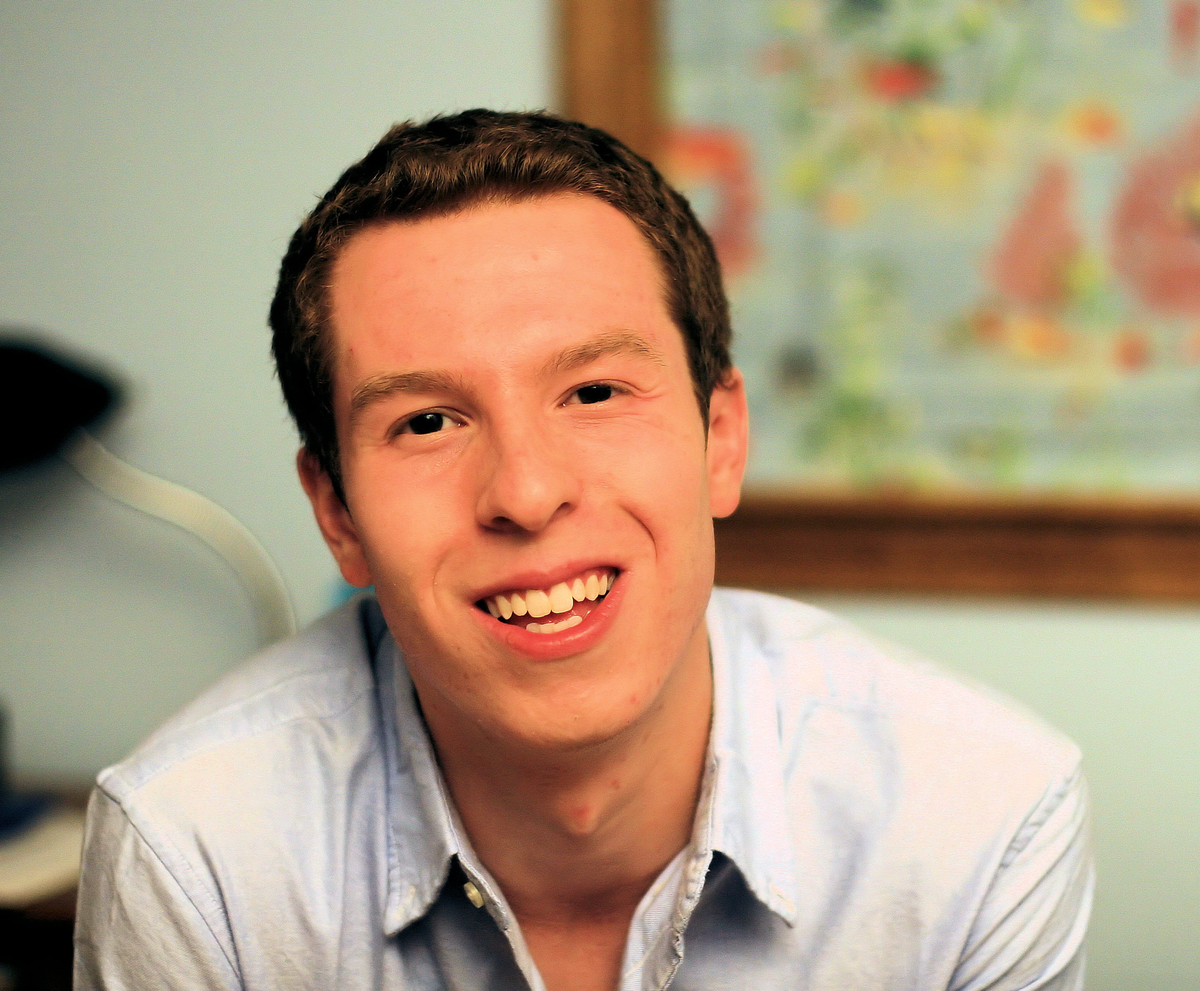Thoughts on Theses: Derek Schneider

Derek Schneider is a senior biology major writing a thesis on speciation in lycium australe. His advisor is Professor of Biology and Environmental Studies Jill Miller.
Q: What is your thesis about? A: My thesis is about investigating speciation in plants. My lab focuses on a species of plant called lyceum australe. It grows in Australia, as the name suggests. Some previous theses in my lab have noted some significant differences across its range, and there’s some specimen that have purple flowers, some that have white flowers. Some have one type of sexual system, which means their flowers are either male or female, while others have a system in which there are either female or hermaphroditic flowers. These are pretty big differences we’ve been noting. There is also some geographic distribution to these differences, and my thesis is evaluating the types of plants and the areas where they overlap and investigating whether [the plants] can reproduce with each other and asking if there is a genetic basis for calling them different species or not.
Q: Are there previous students who have been working on this same plant? A: A couple years ago, there was one thesis student who started this investigation by looking across the plant’s entire distribution. She found these differences across its range. I began working on this problem last semester. My advisor was on sabbatical in Australia last fall, and she returned in the spring after visiting two areas where these plants overlap, and I started looking into the the data she discovered while on sabbatical.
Q: What is a typical day working in the lab like for you? A: I don’t have any one typical day but what I really like about my lab work is that I have a really good mix of organismal work and also traditional bench work. A lot of what my advisor brought back from Australia was seeds. Over the summer I planted a bunch of those seeds in the greenhouse, and they’ve been germinating. I’ve been measuring [the plants] for some traits. I spend a lot of time in the greenhouse with plants but I also do a lot of DNA work in the lab on the bench. That means doing a lot of pipetting and doing a lot of PCR — polymerase chain reaction, a method for copying small segments of DNA.
Q: What has been your favorite part of the process so far? A: I think a lot of what I enjoy is just thinking about the project in general and trying to figure out where I want to take it. There are potentially a lot of different directions to go. I’ve found times where through what I’ve been reading and just talking with my advisor I end up with this experience where I’m just thinking about what I want to do and imagining all of the possible routes I can take with my project.
Q: What has been the hardest part of the process so far? A: I’ve been setting up a pretty intensive method of sequencing for the past few months now and it’s been a lot of work to get it together. It’s not exactly a traditional type of sequencing. It requires a lot of DNA and a lot of testing is required before the company will accept it for processing, so that’s been a lot of work.
Q: Do you think you’re going to finish your project at the end of the year or is this something you plan on continuing to research in the future? A: I think that I should have an answer to the most fundamental research questions such as whether these are two different species or not. I think I should have some good ideas about the answer to that question by the end of my thesis. As with any research project, there will be future directions for other researchers to go and there may be questions that inspire a future thesis student. But I should hopefully be able to answer my questions.
Q: What has been the most rewarding part of the process? A: It’s been really fun to see my plants germinate. I planted almost 2,600 of them, and I’m seeing a lot of success in this process. It was actually a lot of work getting them all planted and stuff, and finally seeing them sprout is very rewarding. It’s also been rewarding to start with a ton of broad questions and ideas for my investigation and actually being able to go and do these experiments and find the answers.
Q: Do you have any advice for other thesis writers? A: I would say if you’re thinking about writing a thesis, you should definitely do it. Talk to potential advisors that you’re interested in working with and seeing what their programs are and how you could potentially fall into their research and how you can help them. If you’re scared that it’s a lot of work, if you’re really interested in performing research and exploring a subject, go ahead and do it.





Comments ()